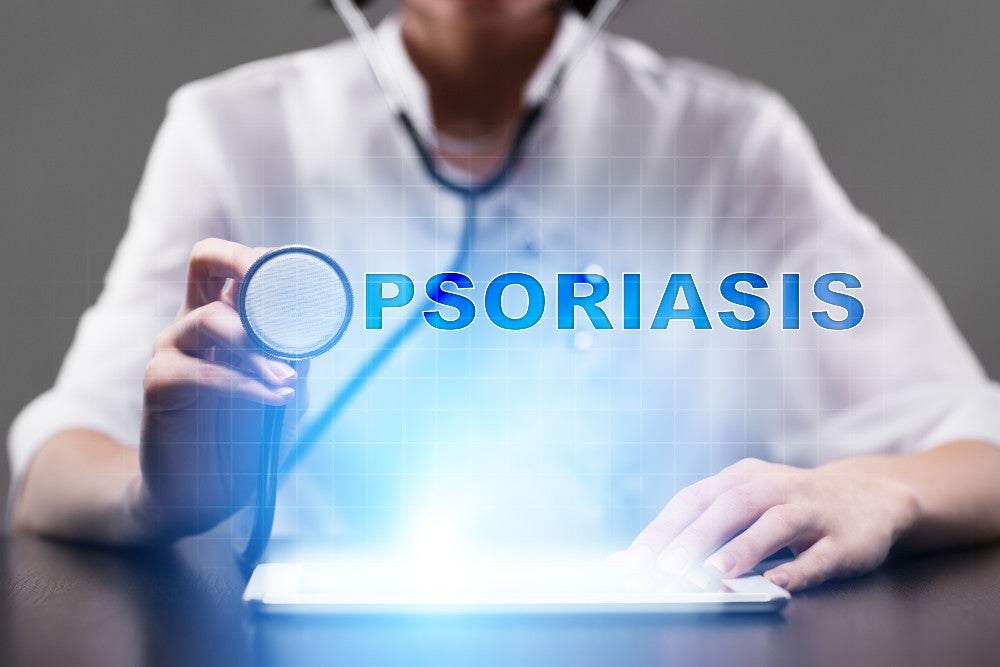
JNJ-2113 achieved all main and secondary efficacy endpoints. Credit score: Wright Studio / Shutterstock.
Janssen Prescribed drugs of Johnson & Johnson (J&J), a key participant within the biopharmaceutical area, introduced on 4 July its newest medical trial outcomes of JNJ-2113, the novel, first-in-class oral interleukin 23 receptor (IL-23R) antagonist peptide in grownup sufferers with moderate-to-severe plaque psoriasis (PsO).
Based on the reported topline findings from the Section IIb medical trial, JNJ-2113 achieved all main and secondary efficacy endpoints, demonstrating full clearance and enchancment in pores and skin lesions of trialled individuals when in comparison with the respective placebo teams, indicating the potential of the agent to remodel the remedy panorama for PsO (Janssen, press launch, July 4, 2023).
Based on an article by Damiani and colleagues in Frontiers in Drugs, PsO is a systemic immune-mediated dermatological situation, which impacts 2–3% of the world’s inhabitants and is linked to bodily results and debilitated high quality of life.
JNJ-2113 is an progressive oral remedy that particularly targets and binds with excessive affinity to the IL-23R, a driver and significant component within the pathogenesis of immune-mediated inflammatory ailments, together with PsO, with distinctive traits that allow its absorption via oral dosing. By selectively blocking IL-23/IL-23R signalling and the manufacturing of inflammatory cytokines downstream, JNJ-2113 provides a particular and efficient method to managing PsO.
The efficacy of JNJ-2113 was bolstered by J&J’s randomized, multicenter, double-blind, placebo-controlled, 24-week Section IIb FRONTIER 1 (NCT05223868) medical trial, which evaluated three once-daily dosages and two twice-daily dosages of the agent taken orally by sufferers with moderate-to-severe plaque PsO and which types the idea for the agent’s development to Section III improvement.
The outcomes of the trial had been evaluated in relation to the Psoriasis Space and Severity Index (PASI), with a PASI 75 at Week 16 being the first endpoint and a PASI 90 and PASI 100 at Week 16 versus the placebo arm being the co-secondary endpoints. Outcomes indicated the proportion of sufferers who achieved PASI 75 was 9.3% for the placebo group, and 37.2%, 51.2%, 58.1%, 65.1%, and 78.6% of sufferers for the 25mg once-daily, 25mg twice-daily, 50mg once-daily, 100mg once-daily, and 100mg twice-daily JNJ-2113 teams, respectively, at Week 16.
Equally, the proportion of sufferers who achieved PASI 90 was 2.3% for the placebo group, and 25.6%, 26.8%, 46.5%, 51.2%, and 59.5% for the 25mg once-daily, 25mg twice-daily, 100mg once-daily, 50mg once-daily, and 100mg twice-daily remedy teams, respectively, at Week 16. Notably, JNJ-2113 demonstrated dose-dependent responses throughout main and secondary endpoints, revealing substantial percentages of sufferers attaining PASI 75, PASI 90, and even PASI 100. These outcomes underscore the spectacular efficacy of JNJ-2113 in treating moderate-to-severe plaque psoriasis.
Moreover, JNJ-2113 was usually properly tolerated by the remedy teams, with no proof of a dose-dependent enhance in particular antagonistic occasions. Probably the most frequent system organ class affected by antagonistic occasions in each remedy and placebo arms was infections and infestations, with the commonest circumstances being Covid-19, nasopharyngitis, and higher respiratory tract infections.
The promising outcomes for JNJ-2113 characterize only one aspect that may weigh positively for the agent. With superior psoriasis remedies having largely been restricted to injectable biologics, JNJ-2113 provides the chance to deal with affected person wants and preferences by offering an oral remedy that immediately targets the IL-23 pathway. This may occasionally result in better remedy adoption and consequently enhance affected person outcomes.
Based on GlobalData’s Pharma Intelligence Middle Medicine Database, with an analyst consensus international gross sales forecast of $292m by 2029, JNJ-2113’s oral route of administration provides it the chance to distinguish itself from different anti-IL-23 inhibitors. Preliminary knowledge means that it might have the next PASI 75 response than Bristol Myers Squibb’s Sotyktu (deucravacitinib), one other IL-23R antagonist.
Nonetheless, oblique comparisons needs to be made with warning attributable to variations in trial design and affected person populations. Total, and as JNJ-2113 progresses towards Section III medical improvement, GlobalData understands that the constructive medical trial outcomes spotlight the agent’s potential to turn out to be a transformative remedy for moderate-to-severe PsO.


